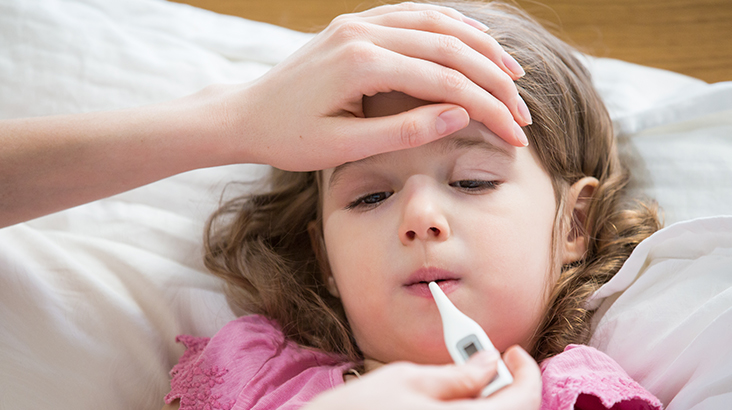
Also known as the flu, influenza is a common childhood illness. Even though there are various vaccines that keep coming out each year to protect against the flu, your child may still end up getting some of the symptoms.
Common symptoms
rltdptd
Some of the most common symptoms of influenza in children are sore throat, runny nose, slight or constant headache, feeling tired even after sleeping or resting, pain in the muscles or joints, sudden fever, coughing, vomiting and even diarrhoea.
In most cases, the symptoms will get better in a week or two. However, if the symptoms do not get better by then and your child seems to be more uncomfortable, the doctor may suggest a hospital stay to help control and treat the symptoms.
Can influenza be a dangerous health condition?
While this is not always the case, sometimes, the influenza virus may be especially dangerous and contagious. In such a case, the condition can spread very easily as compared to other times, and babies and young children are especially at risk.
Children can easily pass on the influenza virus to each other, especially if there is an infected child in the class room. The virus can spread through tiny droplets when an infected child sneezes or coughs. When a child inhales these droplets, the virus can enter the child’s body and put the child at risk. The influenza virus can also spread if your child comes in direct contact with the mucus or spit of a child who is already infected with the virus.
How to prevent?
The best way to make sure that your child is protected against the influenza virus is to give the yearly vaccination after consulting your child’s doctor. These are given to babies once they are more than six months of age.
If your child is over two years of age and is generally healthy, the doctor may also prescribe a nasal spray influenza vaccine.
Treatment
If not treated on time, influenza can lead to other health conditions such as an ear infection, pneumonia or even sinus.
While the vaccine is the best way to keep your child safe against influenza, the doctor may also prescribe some antiviral medications, such as Tamiflu or Relenza, to help prevent any complications.
Remember that antibiotics will not work on influenza as it is a viral infection, while antibiotics will only work on bacterial infections.